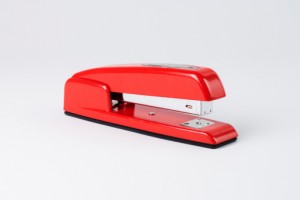 In the workplace, there may come a day when you need to create a project proposal. Maybe you think your company needs a weekly brainstorming meeting. Maybe you have developed a new filing system. A project proposal is a detailed description of activities targeted at solving a problem – from beginning to end and everything in between. If you need to create a project proposal, start with an outline the five W’s of the project –who, what, when, where, and why – as well as outline the how. Creating a proposal helps explain a project to others, gets buy-in, and helps ensure a project of quality and efficiency. So, keep these tips in mind when you’re creating a project proposal.
In the workplace, there may come a day when you need to create a project proposal. Maybe you think your company needs a weekly brainstorming meeting. Maybe you have developed a new filing system. A project proposal is a detailed description of activities targeted at solving a problem – from beginning to end and everything in between. If you need to create a project proposal, start with an outline the five W’s of the project –who, what, when, where, and why – as well as outline the how. Creating a proposal helps explain a project to others, gets buy-in, and helps ensure a project of quality and efficiency. So, keep these tips in mind when you’re creating a project proposal.
Justify your reasoning for the project. You can’t just create a project because you think it will be fun. You need to be able to give reasons and examples of how this project could improve or impact business. Outline what value the project will bring to your company, how the project fits into the overall scheme of what your company does, how it will impact you and your co-workers, and the anticipated outcome.
Create a timeline. After you present a brief overview, break the project down into smaller, more manageable pieces and shows your commitment to the details. Doing so provides organization to your project. You can either break a project down step-by-step or divide it into different phases. It’s also important to assign deadline dates to the project to ensure that the project is created and implemented in a timely manner. The dates that you set should be realistic. Allow enough time for a quality product to be produced, but don’t allow so much time that months or years down the line there is still no end result to show.
Outline financial costs and human resources. It’s also important to estimate how much you think the project will cost. This will include such things as employee time and supplies. Projects can range from needing a very small budget to a large budget, so review the budgets of previous projects completed on a similar level to get a more accurate estimate. It’s also not a bad idea to talk to your manager about what seems realistic for a budget on your project.
Implement a follow-up plan. Once you have all the basics for your project outlined, it’s time to think about how you would measure the results to ensure you’re meeting your goals. Be sure to list out how you would track results and how often you would conduct tracking. The goal of this is to make sure your project achieves the desired results that you hoped for and to determine if you’re addressing the goals.
These are some basics of creating a project proposal. In general, when you take more time in the planning process, the more sound and structured a project will be. Also, doing this communicates to your boss that you believe in your project and want to make it the best it can be. Most bosses would look at this as a sign of leadership, drive, and determination – all good quality’s to have in today’s workforce.


